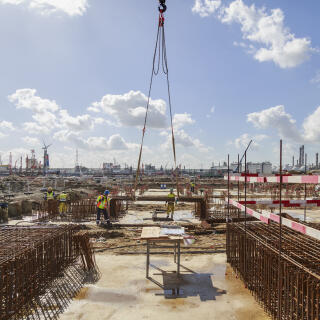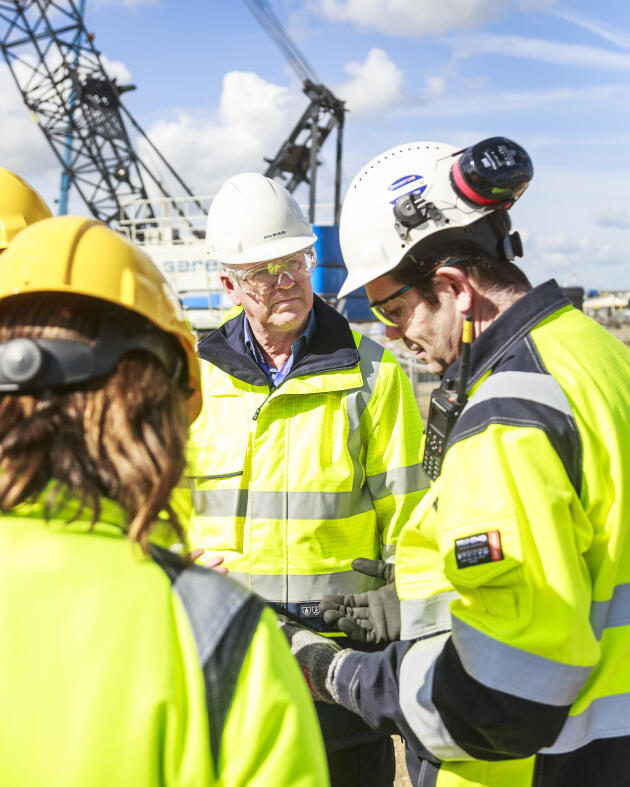


Europe's reindustrialization: A challenging work in progress
SeriesFaced with crushing competition from China and the US, EU member states have revised their strategy to provide greater support for their factories. Yet their efforts remain far from sufficient.
Over 10 days in the summer of 2023, a €4 billion investment in the large industrial zone of Antwerp, Belgium, came very close to being canceled. As a symbol of the challenges in reviving Europe's heavy industry, the fate of the massive project hinged on a technical decision of an administrative court. The project involved the construction of a hydrocarbon steam cracker by the British multinational corporation Ineos. This plant, located in a vast industrial port area that is already packed with petrochemical facilities, was planned to transform ethane, a natural gas, into ethylene, which is used to manufacture plastics. It represented Europe's largest investment in the sector in a generation.
Ineos had started the project in 2019 and secured the building permit from the Flemish regional government in 2022; but a judge from Belgium's Council for Permit Disputes decided to cancel the authorization on July 25, 2023. In her opinion, the company had not proven to a sufficiently detailed extent that its nitrogen emissions would not damage the nature reserves on the other side of the border, in the Netherlands. Except for the Greens, every party was in favor of the project. "But a judge decided against it," said John McNally, who heads the project for Ineos, with some annoyance.
He recalled that its steam cracker would emit half as much greenhouse gas as its European competitors and be far less polluting than Asian plants. The hydrogen released in the process would be entirely reused as fuel in the plant, he explained, adding that the annual nitrogen emitted would be 0.12 kg per hectare, “the equivalent of three barbecues a year.”
Above all, he pointed out that Europe's petrochemical industry has been in decline for the past 25 years. "If Europeans don't produce ethylene here, they'll import it," he said. Outside of Europe, 24 steam crackers have been scheduled for construction over the next five years. In Europe, this is the only one.

Finally, after 800 pages of new studies, a Flemish government decree allowing nitrogen to be emitted if discharges are below a certain threshold, and additional costs amounting to almost €80 million, Ineos eventually received a new permit in January. The company is aiming to get the plant commissioned in early 2027. That is, unless a final appeal to the courts, launched in February by some 15 NGOs, once again brings the whole process to a halt.
For McNally, this story illustrates the difficulties facing the industrial sector in Europe: "These systematic attacks only happen in Europe. This is much less the case in the US, and not at all in Asia. If you were an industrialist seeking to invest €5 billion, where would you choose to go?"
You have 85.35% of this article left to read. The rest is for subscribers only.
